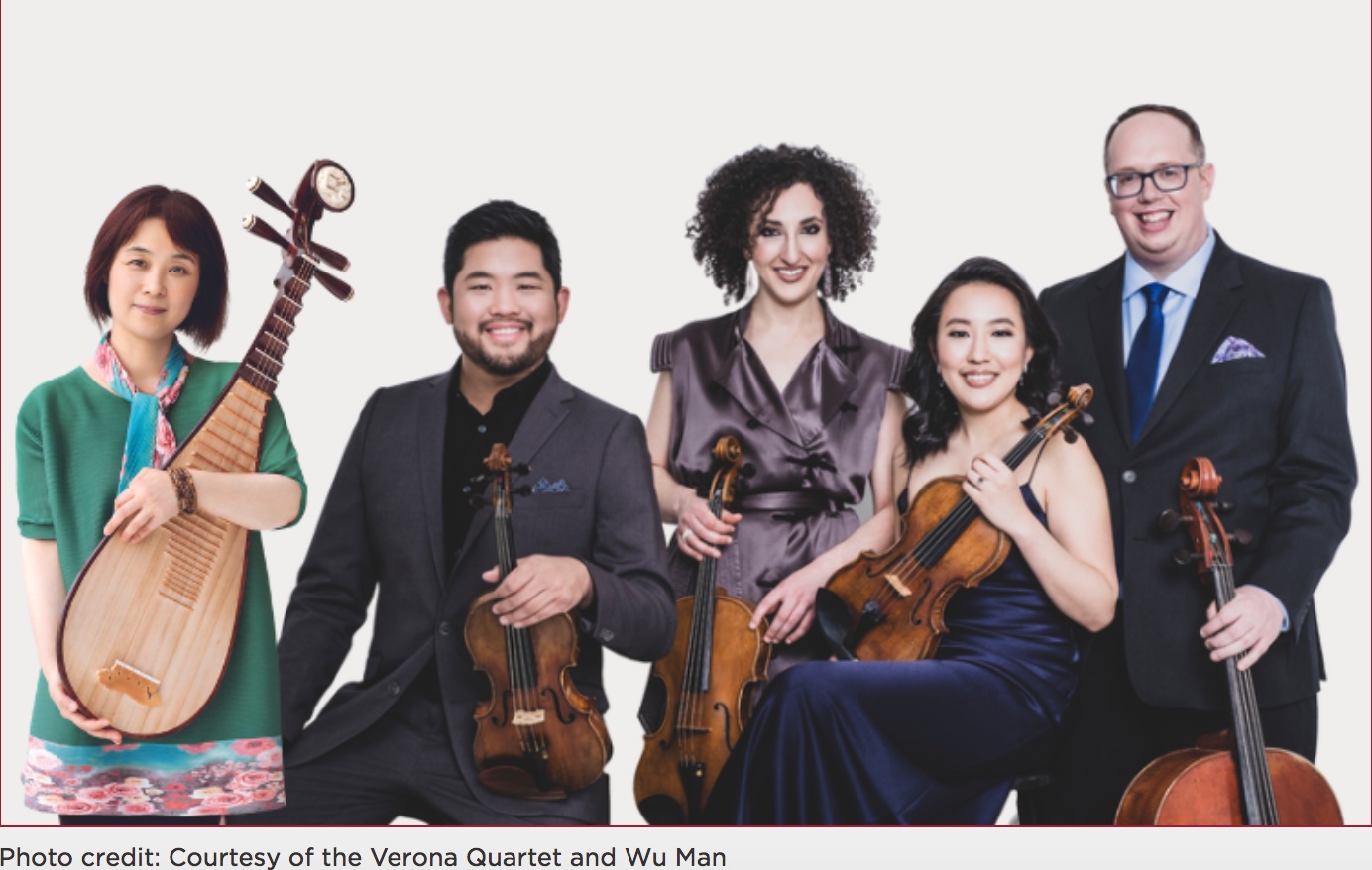by Cathy Partlow Strauss
This article is posted with the permission of the author and Oberlin Conservatory
The pipa is not an instrument on which students at Oberlin Conservatory perform, but the lute-like instrument developed in China more than 2000 years ago is influencing increasingly more concert music found on stages throughout the world.
This is due in large part to the artist Wu Man, recognized as the world’s premier pipa virtuoso and a leading ambassador of Chinese music. She’ll be in residence at Oberlin February 24-25 and take part in three events across campus that culminate in a concert with Oberlin College quartet-in-residence, the Verona Quartet. All events are free and open to the public.
Wu Man has carved out a career as a soloist, educator, and composer, giving the pipa a new role in both traditional and contemporary music. The creative projects she has initiated have resulted in the instrument finding a place in numerous musical settings and genres, as well as in collaborations in theater productions, film, dance, and with visual artists.
Born in Hangzhou, China, Wu Man was an early trailblazer. She was hailed as a child prodigy at age 13 and went on to earn the first master’s degree in pipa the Central Conservatory of Music in Beijing. She moved to the U.S. in 1990 and was awarded a Bunting Fellowship at Harvard Radcliffe in 1998.
Since then, she has performed as a soloist with many of the world’s major orchestras and is the leading interpreter of contemporary pipa music written by composers including Philip Glass, Terry Riley, Tan Dun, and Bright Sheng.
Her notable career has also been marked by several “firsts.” She was the first Chinese traditional musician to receive the United States Artist Fellowship and the first artist from China to perform at the White House. In 2013, she was named Musical America’s Instrumentalist of the Year.
She is a founding member of the Silkroad Ensemble and is a frequent collaborator with ensembles such as the Kronos and Shanghai Quartets.




